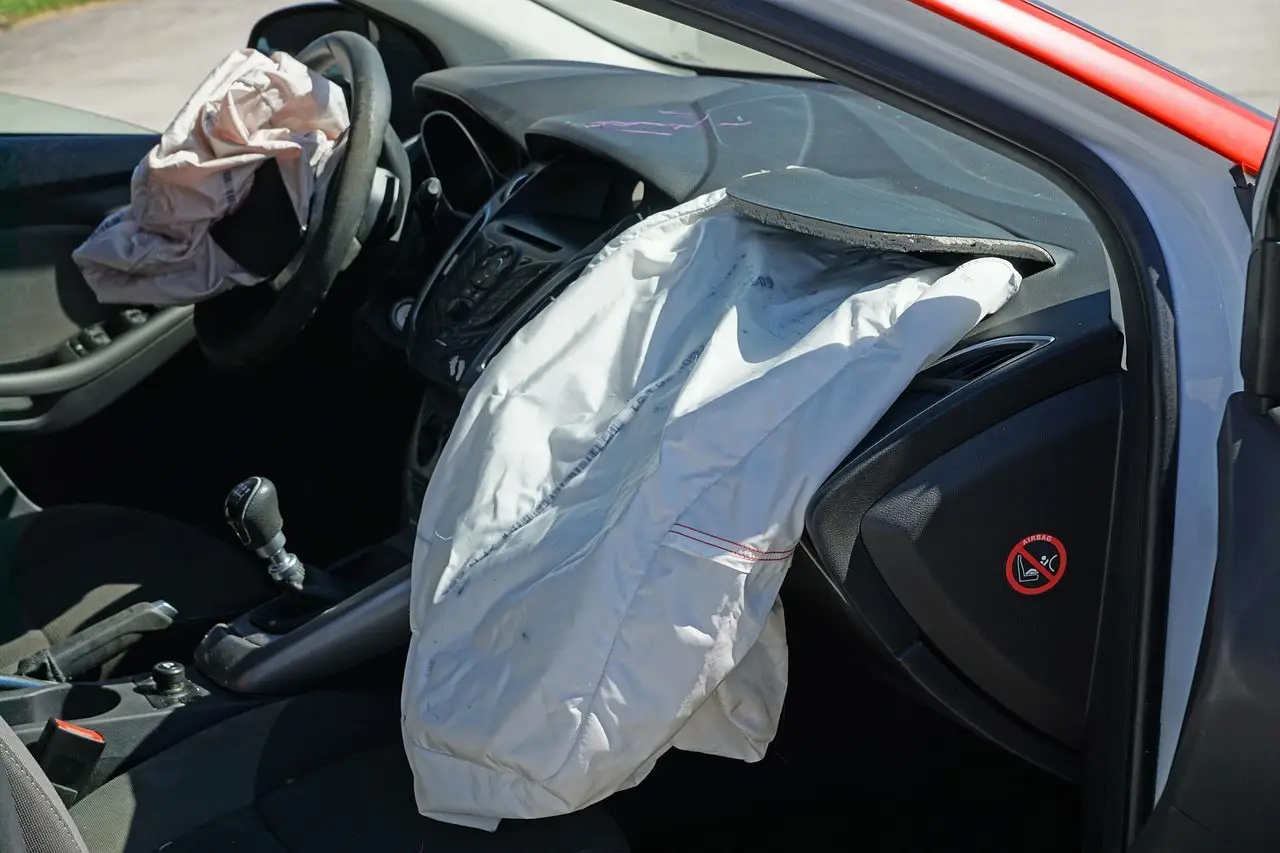Indianapolis Product Liability Lawyer
Helping people is our priority



Since 1993
Injury by consumer products is almost always unexpected and traumatic. Customers and patients trust the products they buy and rely on will work properly. When a negligent manufacturer or retailer plays a role in harming a consumer, those victims deserve representation and justice.
Injury from medicine, electronic devices, vehicles, or other products is sometimes due to a defect in manufacturing, or because the product wasn’t properly designed or labeled. These injuries can also occur when a manufacturer or distributor didn’t share the right instructions or safety advice. In these cases, the manufacturer or retailer of the product may be negligent in their duty to the consumer.
However, in the day and age of online retail, the specifics of which laws and quality standards can be applied to products are more difficult to determine than ever. This is why those injured by bad prescriptions, faulty medical products, or other dangerous consumer products need an experienced Indiana product liability lawyer to represent them and build a case. Here’s some of what you might want to know about injury or wrongful death caused by product defect in Indiana.
Product Defect Injury Statistics
The United States Consumer Product Safety Commission keeps a record of many product-related injuries and deaths in the US. Their records document everything from generator-related carbon monoxide incidents to toy defect injuries, to pool and spa suction entrapment injuries. This also includes fireworks injuries and infants and toddlers being injured by nursery products. You can even use their website to report an unsafe product.
Medical product related injuries and deaths are reported to the Food and Drug Administration, and account for many more cases than other consumer products. In 2016, a study by Johns Hopkins estimated that at least 250,000 wrongful deaths occur due to medical errors, making medical errors the third leading cause of death in the United States. This includes everything from prescription drug defects to faulty joint replacement implants, to pain management devices that are not installed properly, and more. You can use the FDA website to report faulty medical products and devices, though there are requirements for an incident to qualify as reportable.
Product defect suits in particular are viewed in a negative light by many, but without these landmark cases, manufacturers and distributors of faulty products will not be held accountable for quality standards and duty to care. Read more about some specific types of these cases.
Speak with a personal injury lawyer today. Call: 317-488-5500
Pharmaceutical Drug Defect Injuries
The manufacturers of prescription drugs and over-the-counter drugs all have specific duties to the consumer. These include the duty to label products accurately, and clearly disclose all warnings and known potential side effects. Even when a manufacturer has been compliant in this duty, the practice of off-label prescription can still cause the drug manufacturer to be negligent.
For example, Zofran was approved by the FDA to remedy nausea in chemotherapy patients. The drug company then began marketing Zofran to pregnant women for morning sickness. But later, it was found that Zofran could cause birth defects. The drug company was ultimately found liable because they were promoting the off-label use of a product even though it had never been tested on humans for morning sickness. This is just one example of the way an experienced personal injury attorney would consider a manufacturer of prescription drugs might be negligent in their duty to the patient.
How Pharmaceutical Drugs Cause Harm
Americans are taking more prescription drugs than ever. In fact, research has shown that the number of prescriptions that have been filled for adults and children has risen 85% between 1997 and 2016—from 2.4 billion to 4.5 billion a year. We rely on prescription and over-the-counter medications to treat our various systems and get us back to optimal health.
However, many of the drugs approved for use have dangerous side effects. Whether these side effects are unexplored or are known but concealed by drug manufacturers, affected individuals may be entitled to seek compensation for their resulting injuries and illnesses by filing a product liability claim against the at-fault company.
Drug defects can occur when:
- The drug isn’t properly labeled or lacks sufficient warnings about side effects
- The drug was manufactured incorrectly, which results in an extremely high or low dose, or introduces dangerous contaminants into the drug
- The drug was improperly tested and has dangerous side effects
Because the Federal Drug Administration (FDA) regulates medication sales, most people assume all FDA-approved drugs are safe, but this isn’t always the case. There’s currently a long list of defective drugs that are considered dangerous to our health and have been linked to complications and illnesses ranging from blood clotting to cancer. Some of these include the popular birth control pill known as YAZ, which has been shown to double the risk of blood clots, as well as the medication known as Zantac, which has been linked to cancers including breast cancer, kidney cancer, and stomach cancer.
Complete a Free Case Evaluation form now
Medical Product Defect Injuries
Manufacturers of medical devices like hip implants, knee replacements, and intrauterine devices (IUDs) also have the duty to test their devices before release. They also must make sure training and information is available to educate care providers about installing the products. Lastly, they have a duty to warn about all potential side effects of the devices, and to react as new side effects become known.
For example, shortly after the contraceptive device, Essure came on the market in 2002, the manufacturer, Bayer Pharmaceuticals, began to receive wide reports of severe complications in patients. From metal allergies to device migrations into the pelvis and abdomen, the Essure device continued to have devastating consequences for patients nationwide for decades until it was finally taken off the market. This is one example of how a medical device manufacturer can be considered negligent or even knowingly malicious in their acts toward patient consumers.
Click to contact us today
Motor Vehicle Manufacturing Defect Injury
Motor vehicle manufacturing defects have claimed many lives and caused many more severe injuries over the decades. The National Highway Traffic Safety Administration (NHTSA) has determined the following to be some, but not all, of the defects that might require a recall from the manufacturer:
- Steering components that break or stick
- Fuel system components that are susceptible to crash damage
- Wheels that crack or break
- Engine cooling fan defects like blades that break off
- Faulty windshield wiper assemblies
- Inadequate jacks or ramps that may cause injury during repair
- Airbags that deploy when they are not needed, or that fail to deploy when needed
- Car seats and seat belts with components that present hazards, even while not driving
In all these instances and others, the manufacturer has a duty to inform consumers of the recall. If the recall is not issued, or proper steps are not taken to alert the customer and correct the issue, the manufacturer of the vehicle could be considered not meeting their duty.
Defective Industrial Equipment Injury
Industrial equipment is usually encountered in certain types of industrial workplaces. Factories sometimes have machinery that can cause serious injury or death to the workers who operate them. Products like conveyor belts, saws, sanders, lathe machines, boilers, forklifts, bulldozers, valves, and other equipment must be manufactured, installed, and maintained to certain standards. If the manufacturer or retailer does not share these with the employer, they may be partially at fault for injuries by industrial machinery. The same is true at construction sites. For example, a defective crane, defective scaffolds, unsafe saws and nail guns, malfunctioning backhoes and other construction equipment can cause serious injury and death if not built and labeled properly.
Defective Consumer Products Injury
The Consumer Product Safety Commission also tracks fires caused by faulty consumer products and electrocutions caused by faulty consumer products, among other injuries and damages caused by consumer products. Many far-ranging and unexpected incidents could result in injury or wrongful death, including:
- Defective oven, defective dryer, or other household appliance
- E-cigarette injuries like Juul™ causing popcorn lung
- Cell phone injury or other lithium-battery device injury
- Holiday decorations and décor like strings of lights, lamps, and products made with harmful paint or other toxic and low-quality materials
- Defective toys, electronics, or vehicles like bicycles, scooters, and ATVs
- Clothing or costumes that may be flammable
Compensation for Products Liability Cases
When a consumer encounters a defective product, we know that the impact can extend far beyond the initial inconvenience or disappointment. Defective products can inflict serious injuries, leading to complex medical treatments and many types of economic challenges that affect entire families. At Christie Farrell Lee & Bell, we investigate the specific impact of each defective product on our clients’ lives, ensuring that all aspects of their ordeal are addressed in their compensation claims.
If this is your case, you might be eligible for several types of compensation, including:
- Medical costs: Covering everything from emergency room visits to prolonged physical therapy.
- Loss of income: Compensation for the time spent away from work, including future lost earnings if the injury leads to prolonged or permanent disability.
- Pain and suffering: For the physical pain and emotional distress suffered due to the injury, which are often profound and lasting.
- Loss of enjoyment: When injuries prevent individuals from engaging in hobbies and activities they once enjoyed.
- Punitive damages: In cases where the negligence was particularly egregious, these are awarded as a deterrent to prevent similar future conduct by the manufacturer.
For our clients across Indiana, our firm has successfully secured compensation in various personal injury lawsuits, including product liabilities. Andi if you are experiencing a similar situation, we encourage you to reach out for a free initial consultation. We can discuss real case results related to your specific circumstances to set realistic expectations for your potential claim and help you take the next step toward justice.
Indianapolis Product Liability Law and Statute of Limitations
Indiana’s approach to product liability is structured around a framework of statutes designed to protect consumers while providing clear guidelines on the responsibilities of manufacturers, distributors, and sellers. Here are some of the key statutes that anyone involved in a product liability case in Indiana should be aware of:
Key Statutes and Legal Principles
- Indiana Product Liability Act (IPLA) – Indiana Code § 34-20-1.: This act is the foundation for all product liability cases in Indiana, detailing the grounds on which manufacturers and sellers can be held liable. This includes situations where a product was defectively designed, manufactured, or did not include adequate warnings or instructions. The IPLA also covers a range of products, from consumer goods to pharmaceuticals, and it allows for various types of damages, including compensatory and punitive damages.
- General Statute of Limitations for personal injury – Indiana Code § 34-11-2-4: This law requires that most personal injury lawsuits, including those for product liability, be filed within two years of the date of the injury. This two-year timeline applies irrespective of whether the victim was immediately aware of the injury or not. However, exceptions may exist, depending on the specifics of the case, such as in cases involving minors or if the injury was not immediately discoverable.
- Liability for nonmanufacturer sellers – Indiana Code § 34-20-2: This statute limits the circumstances under which a retailer or other nonmanufacturer seller can be held liable for defects in a product. In general terms, this statute limits the liability of a nonmanufacturer seller, which means a retailer, wholesaler, or other entity that did not manufacture the product, may not be held responsible for the product’s defects.
We’ll be happy to help you understand more about your rights under Indiana law and the possible paths to securing the compensation you deserve.
Damages You May Be Entitled To
Whether it’s a malfunctioning auto part that leads to an accident or a hazardous children’s toy, the law seeks to ensure that you are fully compensated for the broad spectrum of consequences. Our team focuses on securing a comprehensive settlement or court award that covers all possible damages, carefully considering every impact the defective product has had on your life.
Here’s how we consider damages in product liability cases:
Extent of Injuries
We start by examining the severity and scope of your injuries. This includes immediate physical injuries as well as long-term effects that may affect your health and well-being. Each injury is evaluated for its impact on your current and future life, which helps in determining the necessary medical treatments and their costs.
Impact on Daily Life
We assess how your injuries have affected your ability to perform daily activities, work, and engage in hobbies or interests that were part of your life before the incident. This helps in calculating damages for loss of quality of life and emotional distress.
Economic Impact
This includes direct financial losses such as medical bills and lost wages, as well as indirect costs like future medical care and loss of earning potential. Our team ensures that every financial aspect is considered, from the need for future surgeries to potential lifelong care or therapy.
Contact Indianapolis Product Liability Attorneys
These are just some examples of how the malfunction or failure of a consumer product, medical device, vehicle, or other item may be related to negligence somewhere in the supply chain of the product. The support and insight of experienced consumer rights attorneys is important if you think manufacturer negligence led you to be injured by a product.
Contact the experienced Indiana product liability attorneys at Christie Farrell Lee & Bell to meet a team of advocates that wants to hear your story and help you achieve peace of mind.
Read more about Indiana Product Liability:
Indianapolis Office
951 N Delaware St Indianapolis, IN 46202
Phone: 317-593-9202

Get a FREE Case Review
Schedule Your Free Consultation














